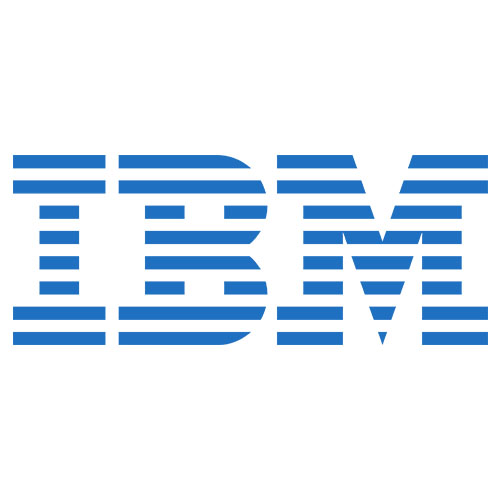In today’s rapidly evolving technological landscape, IBM (International Business Machines Corporation) stands as a beacon of innovation, offering a diverse array of cutting-edge solutions that cater to the intricate needs of modern businesses and industries. With a legacy dating back over a century, IBM’s commitment to excellence and technological prowess has positioned it as a global leader, driving transformative change across various sectors. IBM’s solutions portfolio spans a wide spectrum, catering to the multifaceted challenges and opportunities presented by the digital age. From cloud computing to artificial intelligence, from data analytics to cybersecurity, IBM’s offerings reflect its dedication to ushering in a new era of efficiency, intelligence, and resilience.
Cloud and High-Performance Computing
At the forefront of IBM’s contemporary offerings is its cloud computing prowess. IBM Cloud provides an expansive suite of services that empower businesses to transform digitally and operate in a dynamically connected world. Whether it’s Infrastructure as a Service (IaaS), Platform as a Service (PaaS), or Software as a Service (SaaS), IBM Cloud offers a flexible and scalable environment that allows organizations to innovate at the speed of thought. With hybrid and multicloud capabilities, businesses can seamlessly integrate on-premises systems with cloud resources, ensuring optimal performance and security.
IBM’s cognitive solutions have redefined the possibilities of artificial intelligence. The evolution of Watson, IBM’s cognitive computing system, continues to push boundaries. Watson’s natural language processing, data analysis, and machine learning capabilities have transcended game shows and now serve as invaluable tools across industries. In healthcare, Watson assists clinicians with diagnosing complex conditions and recommending personalized treatment options. In finance, it aids in fraud detection and risk assessment. By augmenting human intelligence, IBM’s cognitive solutions pave the way for more informed decisions and innovative breakthroughs.
In an age where data is the new currency, IBM’s data and analytics solutions provide the means to harness its potential. The IBM Integrated Analytics System combines data science, business intelligence, and data management capabilities into a unified platform. This empowers organizations to derive actionable insights from their data, enabling them to make strategic decisions and uncover hidden patterns that drive business growth. Furthermore, the IBM Cloud Pak for Data accelerates the process of collecting, organizing, and analyzing data across various sources, ensuring that data-driven decisions are made with speed and accuracy.
Recognizing the nuances of modern business environments, IBM’s hybrid cloud strategy bridges the gap between traditional IT infrastructure and the cloud. The IBM Cloud Pak family facilitates the seamless integration of applications, data, and workloads across multiple environments, ensuring a consistent experience regardless of where data resides. This strategy empowers organizations to maintain control, security, and compliance while embracing the agility and innovation offered by the cloud.
IBM Power Systems are known for their high-performance capabilities and are often used in HPC environments. These systems leverage IBM’s POWER architecture and are designed to handle demanding workloads. They offer scalable solutions with advanced parallel processing and memory capabilities, making them suitable for tasks ranging from scientific simulations to data analytics.
IBM Spectrum Computing is a suite of software-defined infrastructure solutions that optimize and manage HPC clusters. This suite includes tools for workload and resource management, job scheduling, and cluster administration. These tools help organizations maximize the utilization of their HPC resources and improve overall system efficiency. While not traditional HPC, IBM’s efforts in quantum computing are noteworthy. IBM offers cloud-based access to quantum processors through the IBM Quantum Experience platform. Quantum computing has the potential to solve complex problems that are beyond the reach of classical computers, making it a promising area for scientific and research-based HPC applications.
IBM provides cloud-based solutions that cater to HPC workloads. IBM Cloud offers virtual and bare metal instances optimized for HPC tasks. This allows organizations to provision and scale HPC resources on-demand, making it easier to tackle compute-intensive tasks without the need for significant upfront investments in hardware.
IBM has a history of involvement in supercomputing initiatives, including the development of some of the world’s most powerful supercomputers. These supercomputers are often used for scientific research, weather prediction, and other high-performance applications. IBM’s involvement in these initiatives showcases their commitment to advancing the field of HPC.
Today, IBM frequently collaborates with research institutions, universities, and industry partners to advance HPC solutions. These collaborations often lead to the development of innovative technologies and methodologies that enhance the performance and capabilities of HPC systems.
Blockchain Technology
IBM has embraced the transformative power of blockchain technology. Through its IBM Blockchain solutions, the company addresses challenges related to transparency, security, and trust in diverse industries. By creating tamper-resistant, immutable records of transactions and interactions, IBM’s blockchain offerings are revolutionizing supply chain management, digital identities, and cross-border payments. These solutions foster trust among stakeholders and streamline processes in a world that demands transparency and efficiency.
IBM’s Watson AI technologies have ushered in a new era of cognitive computing. From data analysis to language processing and decision-making, Watson’s capabilities have found applications across industries such as healthcare, finance, and customer engagement. As data becomes the lifeblood of businesses, IBM provides comprehensive tools for data management, analytics, and deriving actionable insights. This enables organizations to make informed decisions based on robust data-driven insights. Moreover, in the realm of blockchain technology, IBM has established itself as a trailblazer. Its solutions contribute to enhanced transparency, efficiency, and security in areas ranging from supply chains to digital identities.
IBM’s origins can be traced back to the early 20th century. Established on June 16, 1911, by Charles Ranlett Flint, the company was initially known as the Tabulating Machine Company. This early incarnation sowed the seeds of IBM’s future dominance and influence. Through a series of mergers in 1914, the company transformed into the Computing-Tabulating-Recording Company (CTR), setting the stage for its eventual dominance in the technology and business solutions arena. The transition to the name IBM in 1924 reflected the company’s growing focus on international business endeavors.
IBM’s solutions today are a testament to the company’s enduring commitment to innovation, excellence, and addressing the dynamic needs of a digitized world. From revolutionizing cloud computing to unlocking the potential of artificial intelligence and blockchain, IBM’s offerings touch every facet of the modern enterprise. As industries evolve, IBM’s solutions continue to drive transformation, equipping businesses with the tools they need to thrive in an era defined by connectivity, intelligence, and resilience. With a legacy built on groundbreaking innovation, IBM remains a guiding force in shaping the digital future. IBM’s enduring legacy is a testament to its unyielding commitment to technological advancement, innovation, and industry leadership. From its humble beginnings as a tabulating machine company to its present-day position as a technological juggernaut, IBM’s journey has been characterized by its ability to shape, adapt to, and drive change. As we navigate an increasingly digital world, IBM’s contributions continue to influence and redefine the technological landscape, serving as a beacon of innovation and a harbinger of what’s possible in the realm of technology.
Company:
IBM
Management:
Arvind Krishna, Chairman & CEO
Quote:
“IBM has a history of involvement in supercomputing initiatives, including the development of some of the world’s most powerful supercomputers. These supercomputers are often used for scientific research, weather prediction, and other high-performance applications.”












